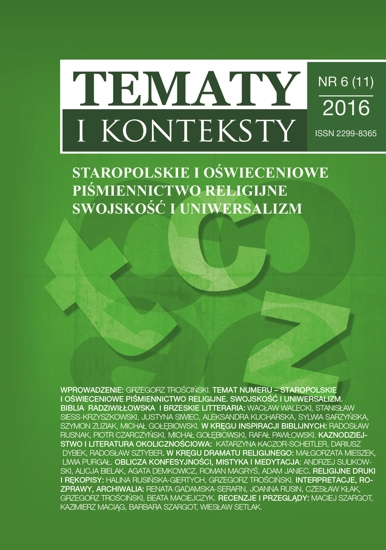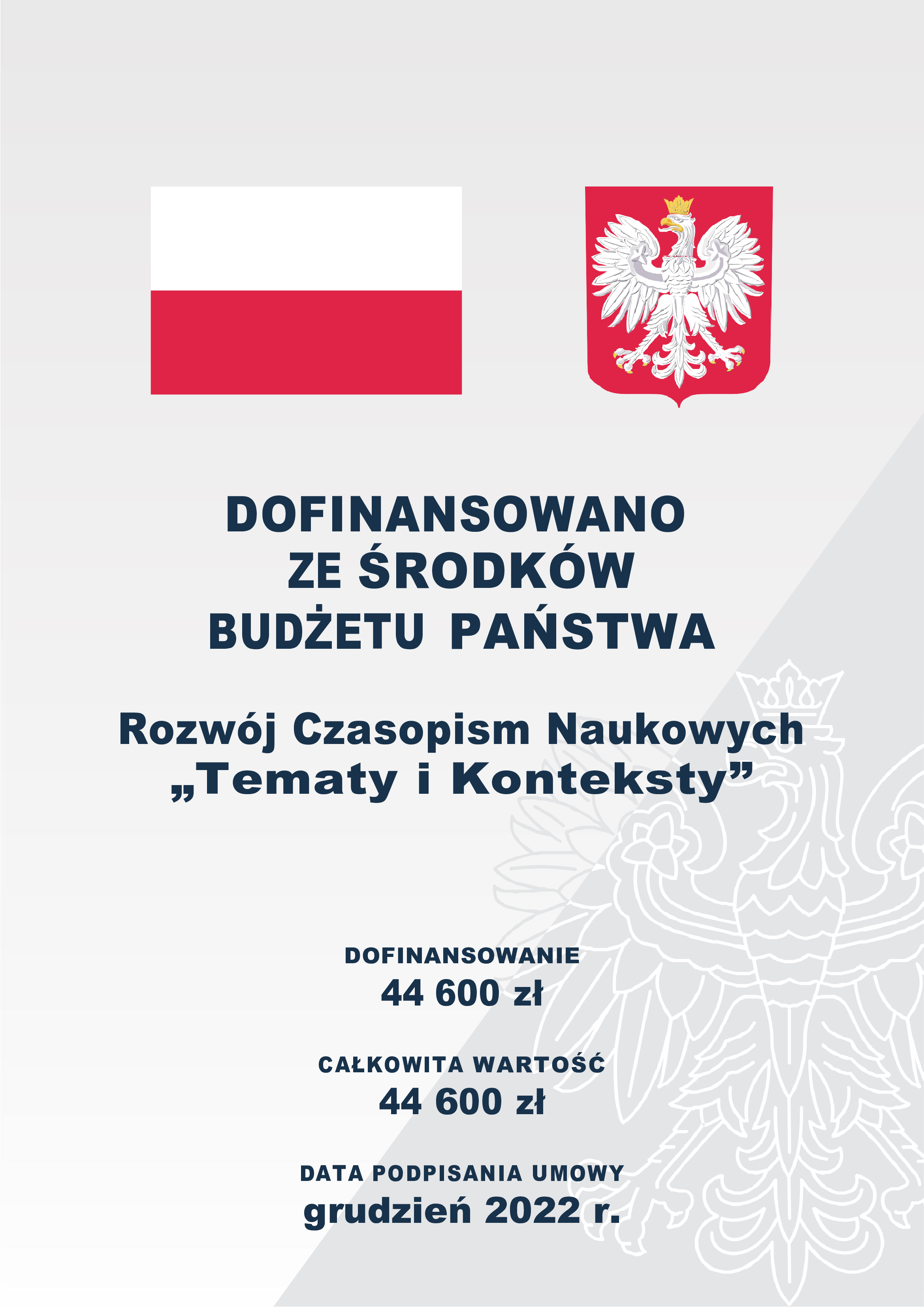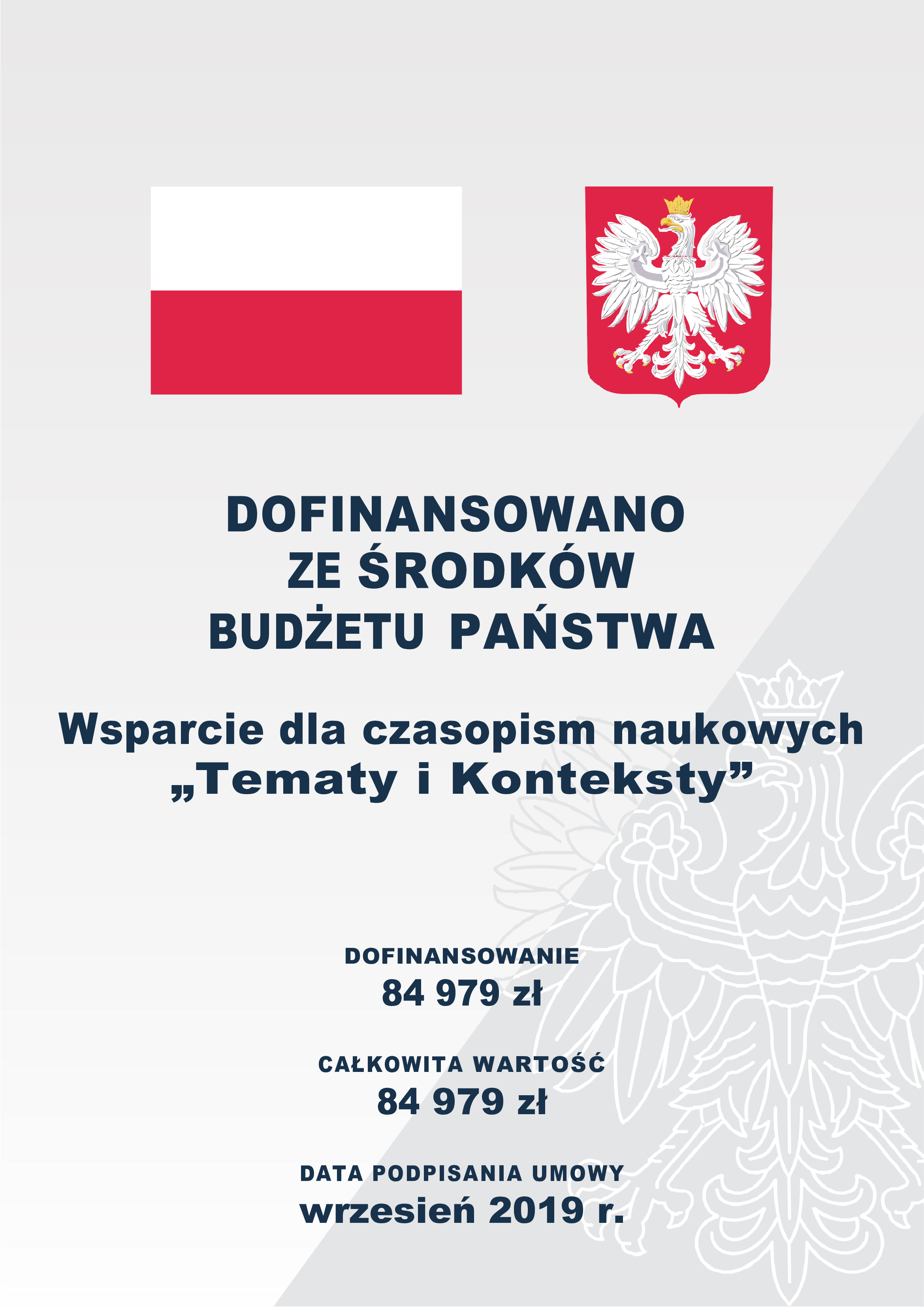„Tyś kształt człeka nad insze stworzenia ozdobił”. Dobro stworzenia i zło grzechu w pieśniach psalmicznych Niepróżnującego próżnowania Wespazjana Kochowskiego
Słowa kluczowe:
Wespazjan Kochowski, Niepróżnujące próżnowanie, Augustyn z Hippony, barok, psalm, grzech, pokuta, ekspiacjaAbstrakt
The study is devoted to the issues of eulogy of the world and contempt of the temporal and sinful condition of man based on “psalmic cantos” in Niepróżnujące próżnowanie [Not Idling Idleness] by Wespazjan Kochowski. As I try to prove, the religious attitude of the Sarmatian poet indicates continuity of patristic tradition, especially the so-called “golden era” of the Fathers of the Church (turn of the fourth and fifth centuries). Kochowski’s theological vision contained in the song Everything from Heaven and in the poetic series To the Penitent is based on the dichotomy between the original perfection of creation and the need for God’s healing grace.
Downloads
Pobrania
Opublikowane
Jak cytować
Numer
Dział
Licencja
Prawa autorskie (c) 2016 Tematy i Konteksty

Utwór dostępny jest na licencji Creative Commons Uznanie autorstwa – Użycie niekomercyjne – Bez utworów zależnych 4.0 Międzynarodowe.




